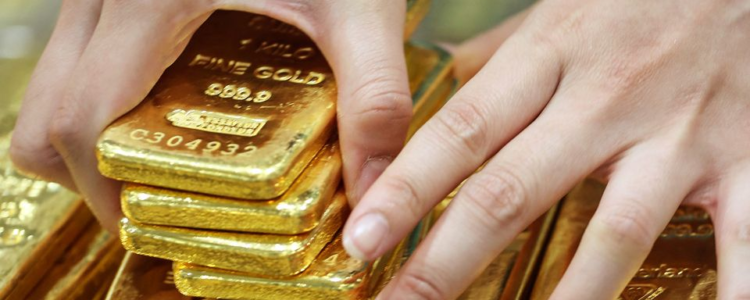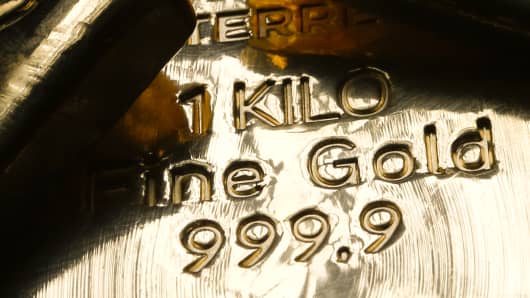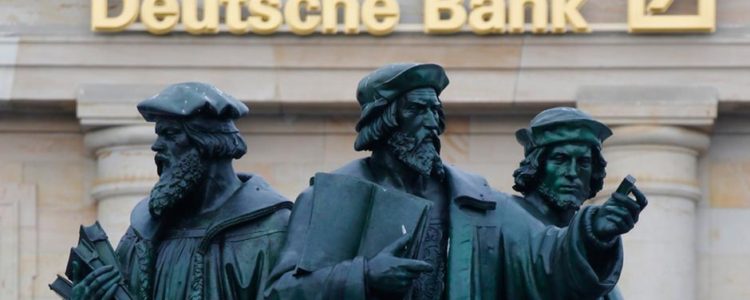It hadn’t happened before, at least not since US presidents started visiting foreign countries after the Second World War.
In early September, when President Obama landed at Hangzhoi for the G-20 summit in early September, the CIA security men were told in no uncertain terms by the Chinese that they were not in charge of landing arrangements, and that the President would disembark by the rear exit. It had the hallmarks of a calculated snub, as did the obligatory photograph of the world’s leaders, where the President was placed firmly on the far left, and not near the centre, which is customary.
Barak Obama suffered a further indignity, when ahead of his visit to Laos the following week, the new Philippine President, Rodrigo Duterte, referred to him as “a son of a whore”. The official meeting between the two was cancelled, though they did meet privately. So not only are ordinary Americans showing signs of rebelling against the status quo at home, but foreigners, some of them very important, are as well.
What follows is an assessment of today’s geopolitical situation, based on a mixture of obtainable facts, background information, informed opinions, and reasoned deduction. Guesswork, eliminated as much as possible, is inevitably involved, particularly in assessing outcomes. The conclusions are not something anyone in the deep states of America and elsewhere will admit to or endorse, which paradoxically gives this article its importance.
This article assesses the failing American empire and the current state of the global power-play between China and Russia on one side, and America on the other. It summarises the importance of gold which is central to China’s financial strategy, and concludes that America is likely to be an accumulator of bullion, for strategic if not monetary reasons. It also looks at the challenges the top three major currencies will face next year, in the context of geopolitical developments to date.
Decline and fall
All empires eventually decline and usually their fiat currencies fall with them, which is what westerners are seeing today. In modern times, it has happened to the British, and now it is happening to the Americans. And when the decline starts, it proves impossible to stop. Either you accept it and retreat gracefully, as the British did giving up her colonies under Macmillan, or you fight it. The Americans are fighting it, which means the decline will be increasingly messy and dangerous. At the centre, directing strategy, is America’s deep state, the senior officials mostly in the intelligence services, who guide the President on security matters. They are obsessed with impeding by fair means or foul the foreign forces that in their paranoia they believe oppose them.
Every significant country has its own deep state. Presidents and prime ministers are not omniscient and need the guidance of experts in both domestic and international affairs. Naturally, this is why intelligence services are central to government, because they provide and present the most important information concerning risks to the state. It is these people who can wield the ultimate power behind elected politicians when it comes to external relations and domestic security, by managing information and influencing their decisions.
External relations are effectively under the control of the CIA in America, and MI6 in the UK. The world saw how dangerous these intelligence services can become when they fabricated intelligence about Saddam Hussein’s weapons of mass destruction. Make no mistake, these two intelligence services took it upon themselves to take us to war. It was clearly intended to pave the way for Saddam’s removal, and led to an appalling civil war between Sunnis and Shiites, as these religious factions sought supremacy in the power vacuum left by Saddam’s overthrow. Tony Blair was discredited, and is reviled by his former supporters. George W Bush was marginally luckier, only because America did not have a damaging Chilcot inquiry.
Then there was Libya, where Hillary Clinton took much of the rap, which could lose her the cherished presidency. The Arab Spring revolt, which started in Tunisia and was encouraged by developments in Libya, spread to Egypt and from there to much of the Arab world, including Syria. In Syria, formally a thriving, peaceful country tolerant of all religions, the CIA stirred up trouble, with the intention of overthrowing President Assad, whose crime was to be loyal to Russia. The lack of any foresight by the Americans has led to a refugee crisis that threatens to destabilise Europe, and was a major factor in the British referendum vote for Brexit. There is also Ukraine, and before that Georgia-Ossetia.
One could go on, listing the CIA’s failures and pyrrhic victories, which are all well documented if you are prepared to dig for the information. With hindsight, we can date the peak of American power to the second invasion of Iraq thirteen years ago. It has been gently downhill ever since, driven by the groupthink in the deep state that advises the President, rather than by China and Russia becoming a threat to the security of the west, as many might suppose.
The mistakes have been all America’s, assisted by her NATO handmaidens, and will continue to be so, and that was the point behind China’s snub at the G-20 meeting, and why a maverick politician in the Philippines can insult the greatest leader on earth and get away with it. It was a public signal that the new kids on the block, China Russia and the emerging economies in the Pacific, are fully aware that the world’s dominatrix is now an aging has-been, unable to crack her whip like she used to. Their own deep states probably saw this coming some time ago, and have played their cards defensibly, rarely being wrong-footed. They understand the dangers created by the power vacuum left on the world stage, and are responding not by seeking America’s dying role for themselves, but by securing their homelands, which in the case of China and Russia is most of the Eurasian continent.
Global power in 2017
In the thirteen years after the overthrow of Saddam Hussein, China in partnership with Russia has evolved the Shanghai Cooperation Organisation (SCO) from its roots as an intelligence-based anti-terrorist committee into a fully-fledged forum for economic cooperation. Importantly, China had the prescience to acquire as much gold as she could, having appointed the Peoples Bank for that function thirty-three years ago in 1983 (more on this below).
China has shown up the extent of America’s decline, by rising to become the world’s largest supplier of goods and user of commodities, purely based on providing the world with the goods it wants. In the last eighteen months she has laid much of the groundwork for her own financial security. With Russia, she has led the establishment of the Asia Infrastructure Investment Bank (AIIB), which will be the financing channel for the future infrastructure development and industrialisation of all Asia.
China is modernising her own territory and expanding the middle class, which will soon be larger than the entire population of the United States. Her citizens, who are strong savers, are accumulating wealth, while westerners are seeing theirs destroyed. Additionally, China plans an industrial revolution encompassing the whole of Asia, starting with land and sea Silk Roads. What took Britain two hundred years for the Asian backwaters she plans to complete in a series of five-year plans. The demand generated for copper, cement, steel and energy will be massive and prolonged, which is why China is keen to deal directly with resource-rich suppliers. China plans to finance this incredible project using any money but dollars. So it is hardly surprising that some of America’s most dependable allies were quick to sign up to the AIIB as partners, because very big money talks very clearly.
With these ambitious projects in mind, China is establishing a new BRICKS bank, a potential rival for the IMF which will allow China and Russia to arrange their own supra-national financing, independently from any US interference. She has even persuaded, some would say blackmailed, the IMF to include the yuan in the SDR in order to accelerate the yuan’s international acceptability. Increasingly, she is settling trade in yuan, and planning sovereign-to-sovereign loans repayable in her own currency. While further depth is needed in her capital markets, much of the groundwork has already been laid, such as setting up new currency pairs, bypassing the dollar in the foreign exchanges, and by pricing oil and gold in yuan. And all this has occurred despite America’s firm grip on global trade settlement through the dollar with its reserve status.
2017 is shaping up towards a new phase. China now has the means to start funding resource-rich countries against their future income flows, much of which will be underwritten by Chinese demand. Target countries typically have high levels of government debt, and are acutely aware that they will be destabilised by the inevitable rise in dollar interest rates. Obvious candidates are Saudi Arabia and Venezuela, both major oil suppliers. They could include Canada, where intriguingly, Justin Trudeau only last week received Premier Li Keqiang after extending his own visit to China for a whole week over the G-20 meeting. China already controls the economies of much of sub-Saharan Africa, where she is building railways, and loans in yuan against future commodity supply are also likely to be extended.
If Canada is on China’s list, that will take her provokingly into America’s back yard, risking a response from America. But how is this all to be paid for, before BRICS becomes fully operational? The answer is simple. Initially, China will draw on her official currency reserves, estimated to be $3.2 trillion equivalent, the bulk of which is in US dollars. US Government debt can be sold down or transferred under swap deals for other parties to liquidate, at least until the US refuses to authorise the transfer of ownership. But this is an interim measure, which will ease the way to the yuan being more widely used for key commodity pricing and for Pan-Asian trade settlement.
It is easy to forget that China’s economists thirty years ago were taught the Marxist line, that capitalism will destroy itself. Yet from about 1980 onwards, they found that supplying yuan for inward investment left the Peoples Bank accumulating growing quantities of dollars, which according to Marxian philosophy would one day be worthless. This led to regulations appointing the Peoples Bank as sole manager of the State’s precious metal acquisition programmei. So for China, the acquisition of gold would have originally been a logical diversification from accumulating dollars. But, presumably not wanting to create friction with the anti-gold Americans, gold purchases were not declared as official reserves, and were hidden in undeclared accounts.
China also embarked on a drive to increase mine output, and today she is the largest producer in the world by far, at about 460 tonnes last year. Refining has always been a state monopoly as well, taking in gold doré and ore from Mongolia and other countries. Much of this gold appears to be absorbed by the state, because state-refined bullion bars, as opposed to branded bars recast from SGE deliveries for retail, are rarely seen on international markets.
In the past I have speculated that this covert accumulation of gold over the last thirty-three years could amount to over 20,000 tonnes, taking into account the scale of inward investment flows, subsequent trade surpluses, contemporary prices, and supplies from western central banks and investors during the great gold bear market of 1981-2000. What originally started out as diversification from exposure to western fiat currencies at some stage became a strategic imperative, presumably when it became obvious to the Chinese that western central banks were leasing and swapping physical gold to be sold into the market. Whatever the total accumulated, the state obviously felt it had acquired enough gold by 2002 to permit the Chinese public to begin buying. The Peoples Bank established the Shanghai Gold Exchange that year for this purpose, and so far has delivered an additional 11,000 tonnes into public hands, net of scrappage.
It is clear that Russia places a similar importance on the accumulation of gold, having in recent years surprised western analysts by adding gold to her reserves, when the preservation of dollar reserves as ammunition to support a falling rouble was deemed to be more important. The extent of her undeclared holdings is obviously not known, but could be significant, though not on China’s scale. Furthermore, it is common knowledge that the US’s Exchange Stability Fund has in the past sold physical gold with a view to supporting the dollar, leading to speculation that the US’s official reserves are considerably less than stated.
Why does this matter? It matters because, despite the wishful thinking of the macroeconomists in the west, gold is still the ultimate form of money, at least in the eyes of the central banks which maintain and add to gold reserves, and more importantly the people and governments of the bulk of the Eurasian land mass. And given that today’s geopolitics is all about China and Russia versus the US, gold is the primary strategic money in a future financial conflict. Chinese analysts also know that the west is badly short of physical metal, with bullion banks running unallocated accounts on a fractional reserve basis for their customers. Bullion banks also suppress gold prices by supplying large quantities of paper gold in futures and options markets out of thin air to soak up speculative demand, positions either hedged into other paper, or not at all.
If China chose to do so, she could bring the west to its knees just by squeezing the market for physical gold. A western financial collapse would be a disaster for all, but China and Russia, together with their SCO partners would be the last men standing, so in that sense the ownership of gold bullion is the ultimate financial weapon. So what does America’s deep state do about it? It must accumulate physical gold as a matter of urgency. This is why, if the stories are true, it made sense for the CIA to smuggle out Libya’s and Ukraine’s gold under cover of the prevailing chaos, and why, far from suppressing the price, the new priority must be for the deep state to accumulate physical gold as rapidly as possible.
Currency implications
The gold story rumbles on, but the more visible topic is the growing likelihood of the old Marxian prediction about capitalism destroying itself turning out to be true, at least for the highly corrupted form we call western capitalism today. By a process of stealth, the economies of Europe and America have actually evolved towards a national socialist model, where the means of production remains in private hands, but the state controls and directs it through regulation. The collapse, if it happens, will have more in common with the failings of socialism, than with anything to do with free markets. And with economic collapse, so too goes the purchasing power of fiat currencies.
The most obvious currency danger is from the euro, for all the reasons we don’t need to go into here. However, Western Europe is seen by China as a trade partner at the end of her Silk Roads, potentially in need of her assistance. She has already bought control of Piraeus, Greece’s largest port, which will become one of her Silk Road terminals. The lesson here was rather like a spider with its web, China just waits patiently for opportunities to come her way.
When individual EU countries need rescuing from future banking and debt crises, it is reasonable to assume China will be willing to help, on her terms of course. At that point, NATO members, such as Italy and Germany, will be faced with a choice: is their future to be a vassal of America, or will it be better to be in a commercial partnership with China and Russia?
If the Eurozone disintegrates politically, the accompanying debt crisis is bound to undermine the euro. It seems unlikely that China will seek to support the euro, instead looking to benefit from the opportunities emerging from distress. She can support systemically important banks if it is in her interest to do so, despite the complete destruction of the euro. This, surely is already under discussion in Beijing. The question is one of price, which will involve both trade considerations and the use of the yuan. Japan is also at a crossroads, but is both physically and culturally closer to China. For the moment, the issue is not so much about currency, but about the failure of monetary and economic policy while in the American sphere of influence. At the political level, relations with China are volatile, reflecting both history and Japan’s alliance with America. But big Japanese corporations, the zaibatsu, work with China very well, employing many people in their manufacturing plants and buying other Chinese goods. The tension between Japan’s political and commercial objectives is therefore increasing all the time, which leads one to speculate how long it will be before commerce triumphs over politics. When that happens, we can expect Japan to join the AIIB, and move away from America’s political domination.
But we return to America, and her deep state. Not only has she made a frightful mess of Syria, opening the way for Russia to dominate the region politically, but she will see her Middle Eastern allies deserting the dollar, simply because they have little use for it, trade having shifted to China and now India. As China develops her parallel international financial markets, surplus dollars outside the US from the Middle East and elsewhere will almost certainly return home in growing quantities. This will obviously put enormous pressure on its purchasing power, necessitating a significant rise in interest rates to offset the price inflation effect. If this is allowed to happen, it will threaten to bankrupt big business in America, and even government itself. So what does America do?
These are the deep state’s likely options.
1. Accept reality and revise foreign strategy accordingly. Given the high level of groupthink and the remnants of cold war philosophy, it is difficult to envisage this being taken as an early option, if at all.
2. Prevent the Chinese from selling Treasuries by refusing bond transfers, and/or banning US banks from allowing currency transfers. The intention would be to hinder China’s plans to provide finance to commodity suppliers by transferring dollars and Treasury bonds to them, or simply selling down their holdings. The danger is this course of action will eliminate the dollar’s role as the world’s reserve currency for all foreign holders. The subsequent dollar crisis would likely escalate out of control.
3. Introduce exchange controls, restricting the return of offshore dollars in the belief that domestic purchasing power would be preserved. That would simply accelerate a collapse of the purchasing power of external dollars, increase the attractions of the yuan and gold as settlement currencies, and create shortages of imported raw materials for the US economy. The ghost of Smoot-Hawley would rattle its chains again.
4. Create more false flag operations, severe enough to encourage foreign speculators to maintain their dollar reserves.
The deep state is unlikely to accept that it’s Check Mate to China and Russia. Increasing desperation and the deep state’s groupthink place a high probability on the fourth option, another false flag operation, or a variant thereof. The world is at a critical juncture already with Syria, where the super-powers are at war through their proxies. Let’s just hope the fears expressed in this article over the senselessness of America’s future actions are overstated.
Gold Investment is the alternative currency that can safeguard you from these types of events. Putting a portion of your savings into this precious metal will help protect you. Download your free self directed IRA rollover gold IRA information kit today.









